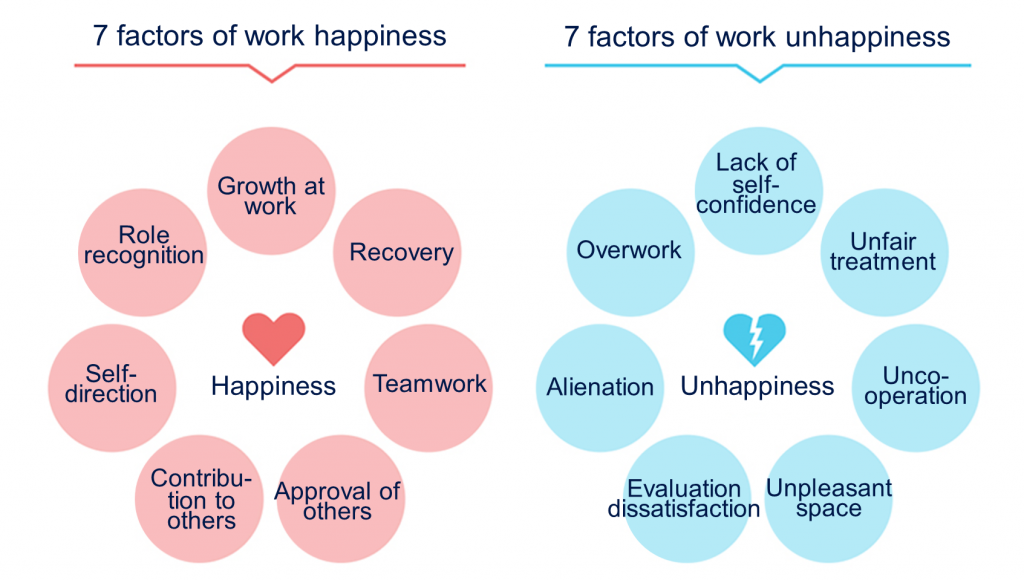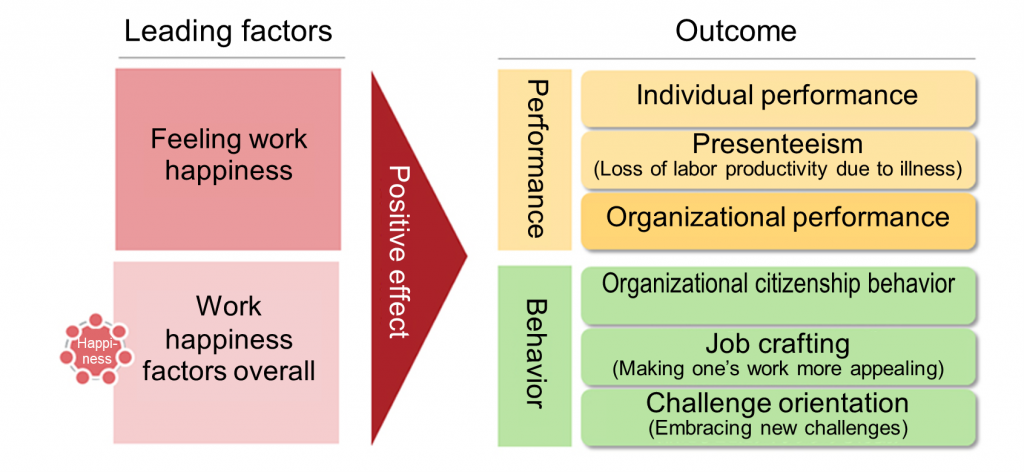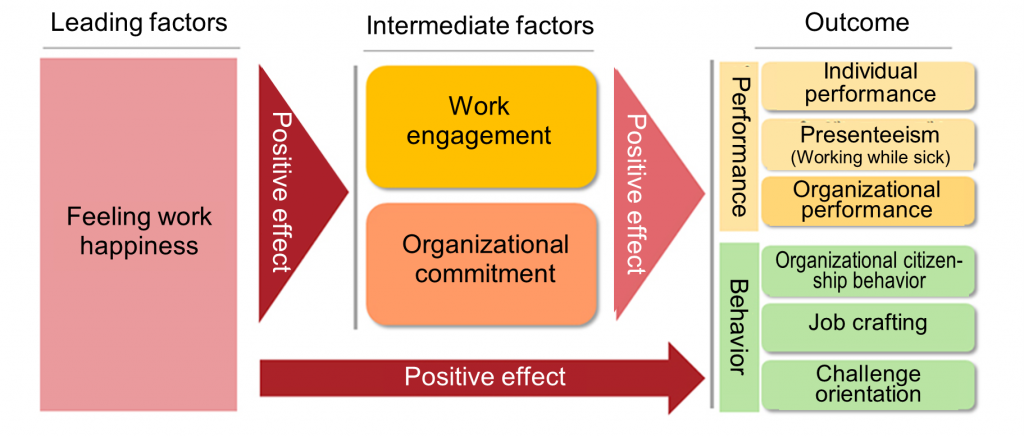Is it important for individuals to “work happily”? Does it lead to improved work performance?
Additionally, does “work happiness” expand and spread?
Mari Kanemoto, a Think Tank Headquarters researcher at Persol Research and Consulting Co., Ltd., has contributed a two-part article on research findings regarding the effects of “happiness through work.” In today’s column, Part 1, we explore whether feeling happiness through work can boost work performance.
In Japan, research focused on well-being in working life has been limited. At Persol Research and Consulting, however, we have been carrying out such research and, in 2020, derived “Factors of Happiness and Unhappiness through Work,” announcing findings indicating that happiness through work leads to the increased performance of individuals and the organizations to which they belong, as well as improved business results.
To further clarify the causal relationship between work happiness, performance, and business results, we conducted an additional empirical study.
The challenge of researching working people’s well-being
How can people live happily? What are the positive effects of living a happy life? In recent years, the study of well-being, which explores questions such as these, has been attracting attention. Although the pursuit of subjective well-being as perceived by people dates back to the time of the ancient Greeks and Romans, scientific research in earnest didn’t begin until the 1980s.
Since the 2000s, the shift to values that emphasize human satisfaction in the face of the slowdown of economic growth in developed countries, along with the rise of positive psychology, has led to active research into the study of well-being.
But research into the discipline of well-being is focused primarily in Europe and the United States, with only a limited amount of related academic research being carried out in Japan. That was why Persol Research and Consulting launched a study into the well-being of working people and released its first findings (in Japanese) in July 2020.
Through our research, we were able to derive the factors contributing to happiness and unhappiness through work and define them as “the seven factors of work happiness and seven factors of work unhappiness” (see fig. 1). The findings also suggest that feeling happy through work enhances the performance of individuals and the organization to which they belong, as well as business results.
But since the results were from a one-time cross-sectional study, the direction of causality—whether happiness boosts performance or performance boosts happiness—was not clear. Therefore, next, as empirical research targeting companies, we conducted a longitudinal study* (released in May 2021) on two occasions on the same individuals to clarify the causal relationship. * Longitudinal studies employ a research design in which the same questions are repeatedly asked to the same research subjects at regular intervals in order to investigate the causal association between several social factors.
Fig. 1. The seven factors of work happiness and seven factors of work unhappiness

Happiness through work boosts performance
The results of the studies revealed a causal relationship in which “a sense of happiness through work (working happiness)” and “factors of work happiness” were the leading factors in enhancing individual performance and productivity, and the performance of the organization to which they belonged (see fig. 2). In addition, working happiness and factors of work happiness were also found to promote positive behaviors toward the organization and work, such as organizational citizenship behavior (altruistic and considerate behavior toward workplace members), job crafting (behavior that makes one’s own work more appealing), and challenge orientation (behavior that embraces new challenges).
In other words, these findings are significant in that they quantitatively confirm that pursuing well-being through work is not only meaningful in terms of welfare, but also yields management benefits in the form of improved performance.
Fig. 2. Causal relationship between working happiness/seven factors of work happiness and performance/behavior

Happiness through work precedes work engagement and organizational commitment
We also found that happiness through work precedes work engagement (degree of devotion to work) and organizational commitment (the attachment and sense of belonging to an organization) (see fig. 3). Conversely, we found that the effects of work engagement and organizational commitment on happiness through work were weak or had no observable effect.
Furthermore, the enhancement of performance and positive behavioral tendencies owing to work engagement and organizational commitment suggests that an increase in happiness through work enhances performance and promotes positive behavior through increased work engagement and organizational commitment.
In recent years, surveys to measure and manage work engagement and organizational commitment have been garnering increased attention. Since happiness through work is the base mental state that precedes these two facets, it is necessary to improve happiness through work in order to increase both.
Fig. 3. Causal relationship between feeling work happiness and work engagement/organizational commitment

This article was published with the permission of Mari Kanemoto of Persol Research and Consulting Co., Ltd. It has been partially modified from its original format. The original article (in Japanese) can be viewed at the following link.
・Feeling happiness through work: Results of an empirical study of companies (Published on May 28, 2021)
Related links:
・Persol Research and Consulting
・The Working People’s Well-Being Project (in Japanese) (Published on July 15, 2020; Last updated on May 28, 2021)
・Results of Survey on Working People’s Happiness (in Japanese) (July 2020)
・Results of Empirical Study of Working People’s Happiness (in Japanese) (May 2021)

